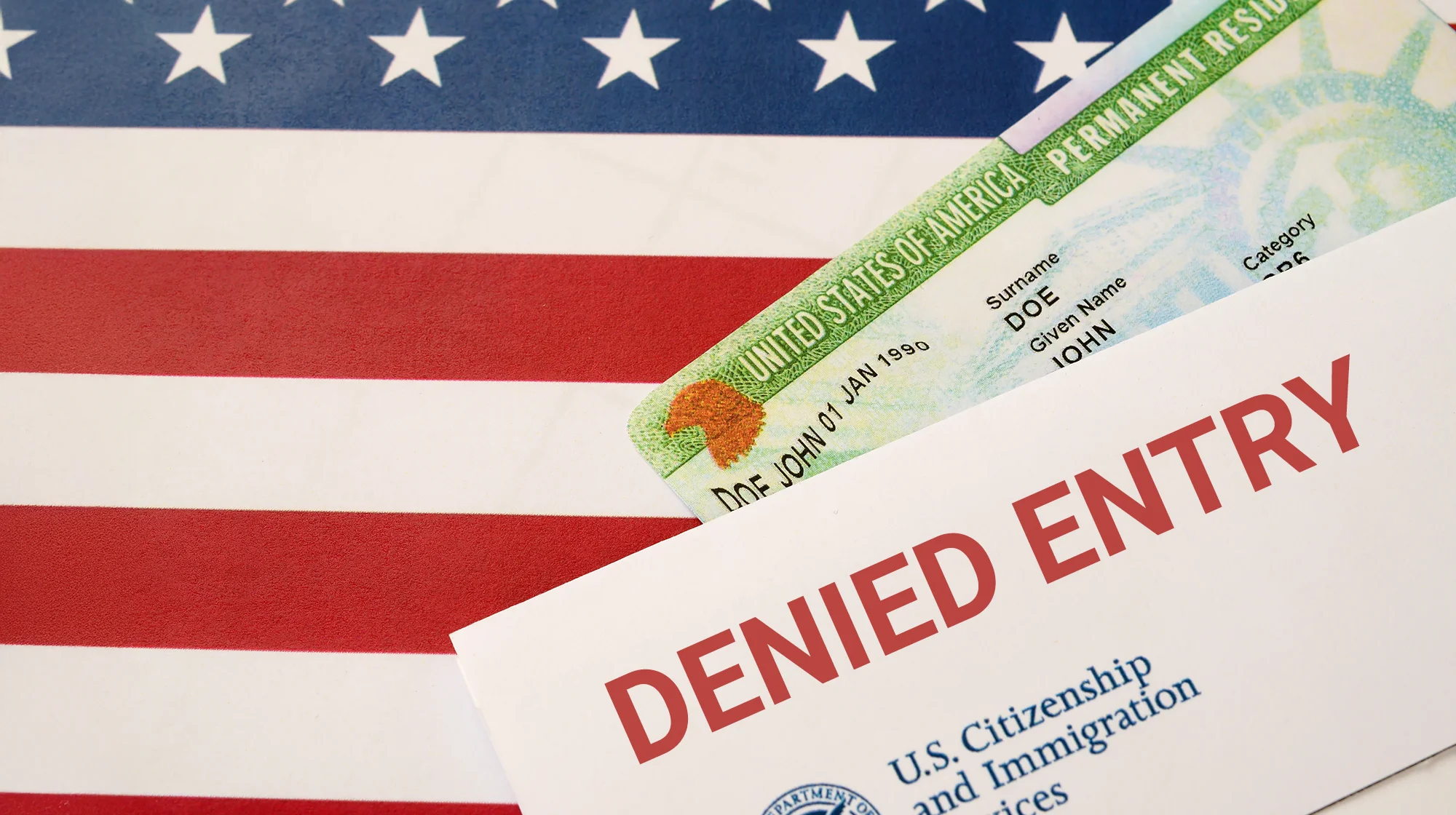
Lawful Permanent Residents (LPRs), or green card holders, have the legal right to reenter the United States—but many are unaware of how vulnerable they can be when detained at a U.S. port of entry. Whether you’re returning from a family visit abroad, a business trip, or an extended stay outside the U.S., you must go through inspection by U.S. Customs and Border Protection (CBP). And that process may not always be simple or quick.
In this article, we break down your rights, what to expect, and what to do if you are detained at a U.S. port of entry.
All noncitizens, including green card holders, are subject to inspection when reentering the United States. CBP officers may question you, inspect your documents, and in some cases, detain you for additional review. This detention often takes place in secondary inspection, a separate area used for more detailed questioning and screening.
Being sent to secondary inspection does not automatically mean you’ve done anything wrong—but it is a critical moment that can impact your immigration status if not handled correctly.
One of the first determinations CBP will make is whether you are considered a “returning resident” or an “arriving alien.” This classification affects whether you’re admitted or referred for removal proceedings.
CBP may consider you an arriving alien (and not a returning LPR) if:
If CBP determines you’re not a returning resident, they may initiate removal proceedings or pressure you to give up your green card voluntarily.
CBP officers may present Form I-407, which is a Record of Abandonment of Lawful Permanent Resident Status. Do not sign Form I-407 without first speaking to a qualified immigration attorney.
Why this matters:
You may also request evidence of your status if CBP takes your green card—for example, a stamp in your passport. If that is refused, you can later schedule an appointment with USCIS for an I-551 stamp.
If you’re detained at a U.S. port of entry, you may go through secondary inspection. Here’s what to expect:
Tip: You can ask for a receipt if your devices are taken and request they be returned.
Even when detained at a port of entry, you have legal rights:
If CBP determines that you are removable, you have the right to an immigration judge hearing. Do not waive this right. A judge—not CBP—must decide whether your green card can be taken away.
You may be asked questions about your political beliefs, religion, or past participation in protests. These are protected under the First Amendment. You are not obligated to answer questions about constitutionally protected activity, and you may decline to do so respectfully.
Speak to an immigration attorney before you travel if any of the following apply to you:
Being detained at a U.S. port of entry as a lawful permanent resident can be stressful—but you are not powerless. By understanding your rights, avoiding common pitfalls (like signing Form I-407), and seeking legal help early, you can protect your status and your future.
If you believe your situation is complicated, it’s better to consult an immigration attorney before traveling abroad. Prevention and preparation are key.
Have you recently traveled or plan to travel as a green card holder? Concerned about what might happen at the airport?
Our experienced immigration attorneys are here to guide you through every step. Whether you’re dealing with long absences, past criminal history, or complex immigration records, we can help you avoid costly mistakes.
Schedule a confidential consultation today to review your case before you travel.
Oleg Gherasimov, Esq.
Stay informed with our latest articles and resources.